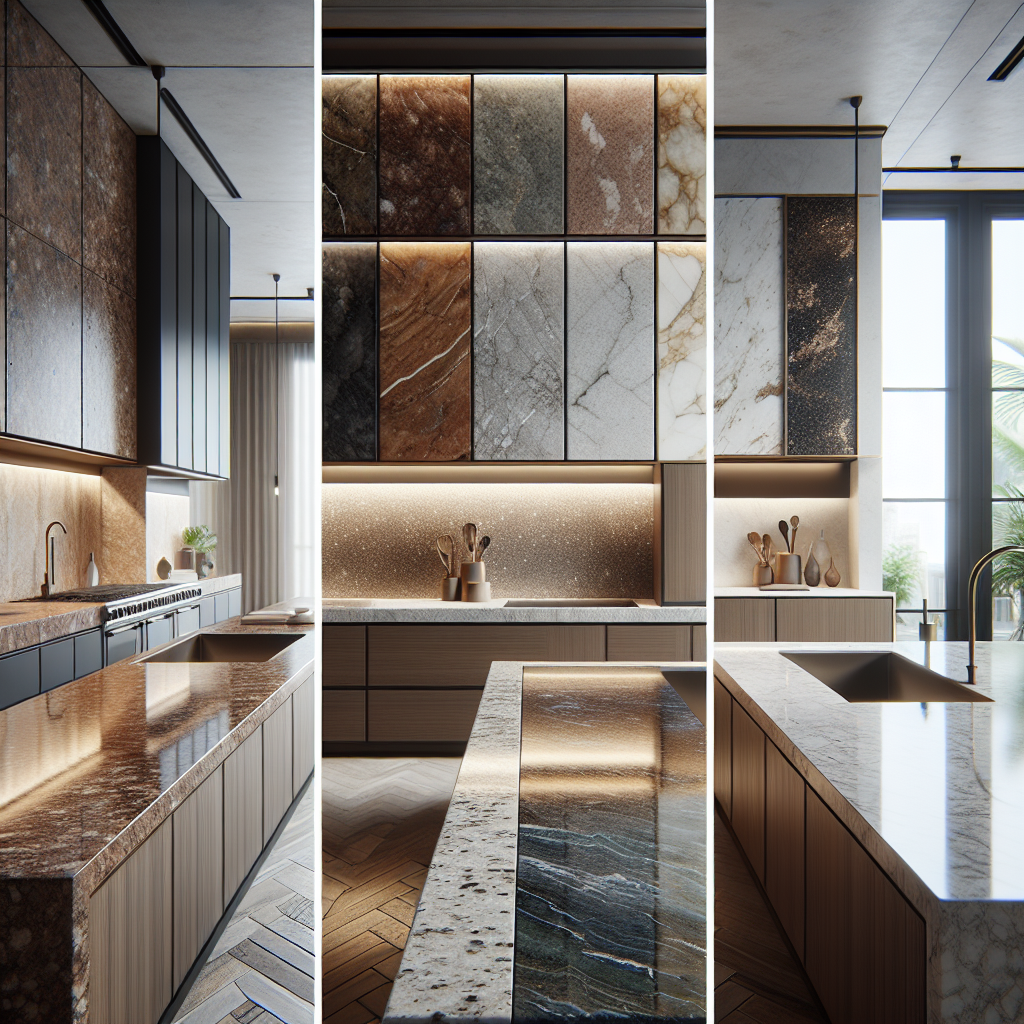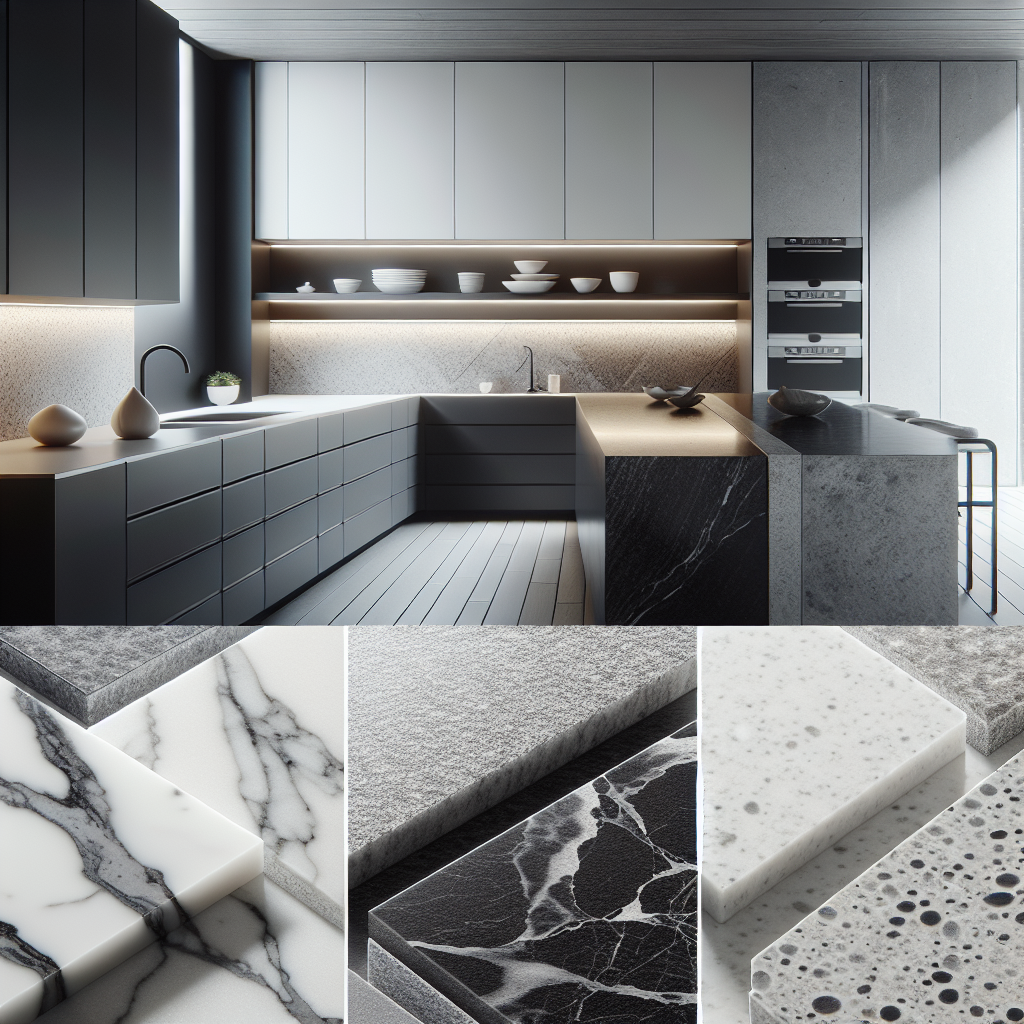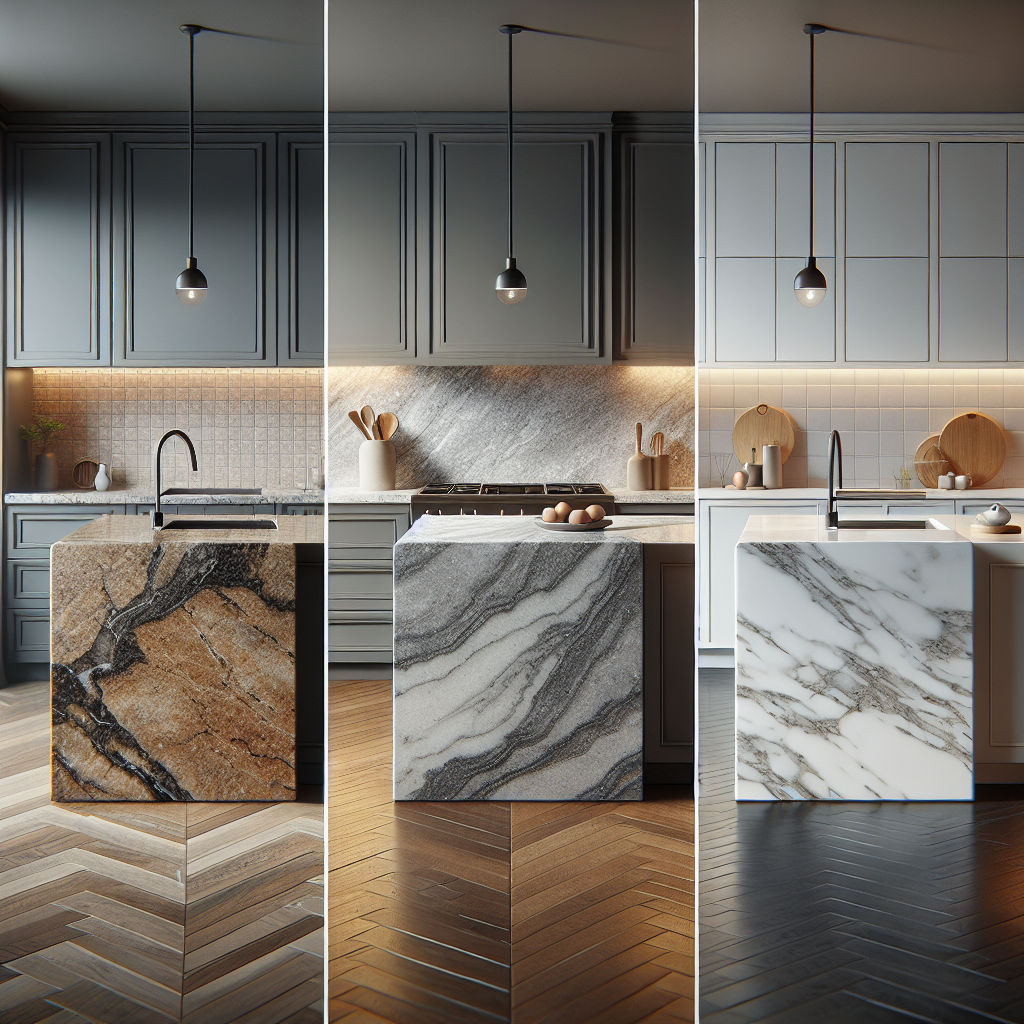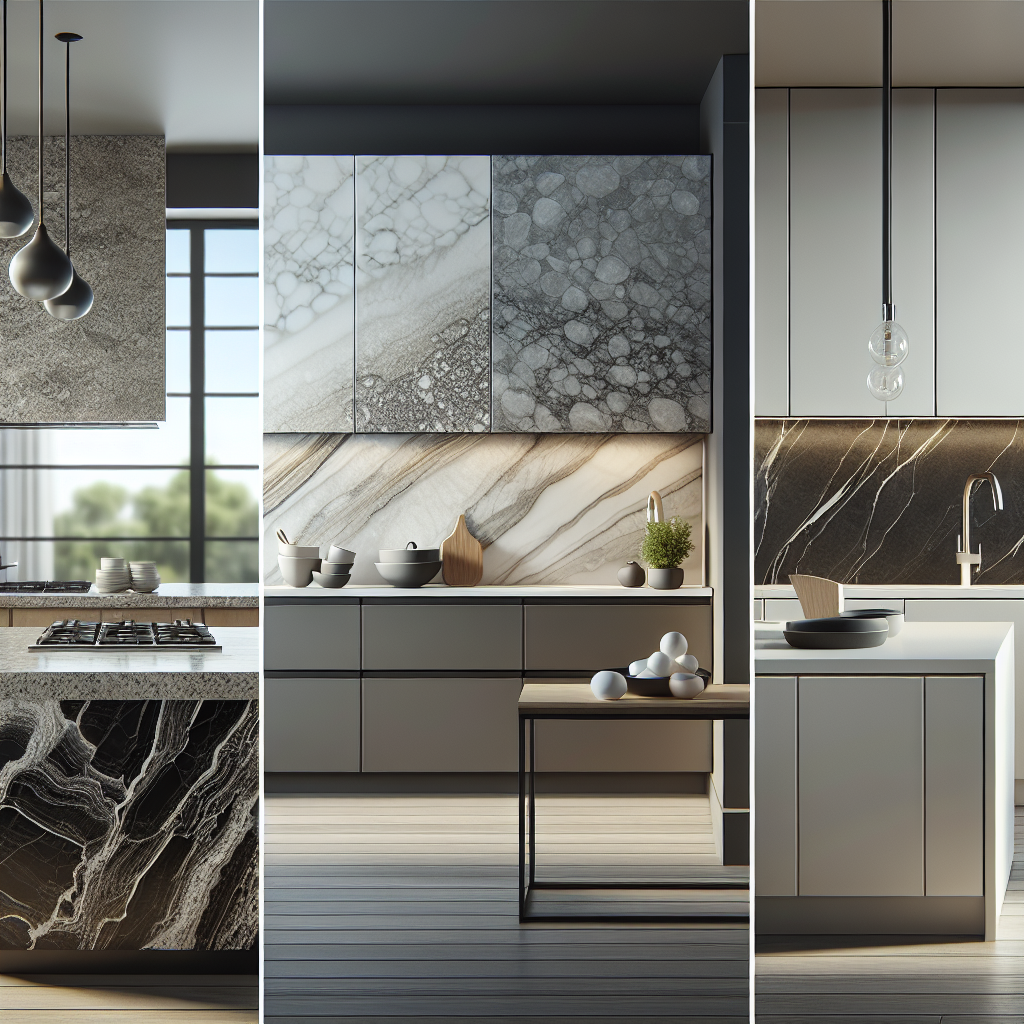Embarking on the journey to purchase new countertops can be a thrilling experience, especially when you envision the transformation of your kitchen space. **Understanding the process** of how countertops are sold is crucial to making informed decisions that align with your aesthetic preferences and *functional needs*. Whether you’re drawn to the timeless elegance of granite, the modern appeal of quartz, or the versatility of porcelain, each material offers unique benefits that can enhance your kitchen’s appeal.
The process typically begins with assessing your kitchen’s current layout and considering how different materials can complement your existing decor. It’s vital to consider factors such as durability, maintenance, and cost, ensuring that your choice not only fits your budget but also meets your lifestyle requirements. **Researching various suppliers** and their offerings can provide you with a comprehensive understanding of what the market has to offer.
At Absolute Marble and Granite, we pride ourselves on offering a wide selection of high-quality materials tailored to meet diverse tastes and specifications. Our experienced craftsmen utilize state-of-the-art technology to deliver countertops that are not only *aesthetically pleasing* but also built to last. *Call us today at (954) 781-7370 for a free quote!* to start your journey towards a stunning kitchen upgrade.
Understanding Countertop Material Options

When it comes to selecting the perfect countertop for your kitchen, understanding the variety of available materials is essential. Each material comes with its own set of characteristics, benefits, and considerations, helping you customize your space according to your needs and style preferences.
Granite is a popular choice, lauded for its natural beauty and durability. Its unique veining and color variations make it a favored option for those looking to add a touch of elegance and uniqueness to their kitchen. Granite is resistant to heat and scratches, making it ideal for busy kitchens.
Quartz, on the other hand, is an engineered stone that offers remarkable versatility. It’s available in a wide range of colors and patterns, and its non-porous surface makes it resistant to staining and bacteria, which is a significant advantage for hygiene-conscious homeowners.
For those seeking a more modern and sleek look, porcelain countertops are an excellent choice. Known for their durability and resistance to heat, scratches, and UV rays, porcelain is perfect for outdoor applications as well. Its lightweight nature allows for more design flexibility, including the creation of thinner profiles.
By weighing the pros and cons of each material, you can make a well-informed decision that aligns with your kitchen’s aesthetic and functional requirements. Whether you prioritize style, maintenance, or durability, understanding these options will guide you in selecting the best countertop material for your home.
Exploring Countertop Fabrication Process

The countertop fabrication process is a critical stage that transforms raw slabs of material into the beautifully finished surfaces you see in kitchens. Understanding this process can help you appreciate the craftsmanship and precision involved in creating your perfect countertop.
Initially, the process begins with material selection. Once you’ve chosen your preferred material, whether it’s granite, quartz, or porcelain, the fabrication team will inspect the slabs to ensure they meet quality standards. This step is crucial as it determines the overall appearance and integrity of the finished product.
Following selection, the next phase involves template creation. Craftsmen use precise measurements to create templates that serve as blueprints for cutting the slabs. This stage is essential for ensuring that the countertop fits perfectly within your kitchen space.
With templates ready, the slabs are then cut and shaped using advanced machinery. This involves cutting the slabs into the desired shapes and sizes, as well as fashioning edges and any special features like cutouts for sinks or appliances. State-of-the-art technology ensures precision and accuracy, minimizing material wastage.
After cutting, the countertops undergo polishing and finishing to enhance their aesthetic appeal. This involves smoothing the surfaces and applying sealants to improve durability and resistance to stains and scratches. The finishing touches bring out the material’s natural beauty, ensuring a luxurious and functional end product.
By understanding the intricacies of the fabrication process, you gain a deeper appreciation for the skilled craftsmanship that goes into creating your countertop, ensuring it not only meets but exceeds your expectations in terms of quality and beauty.
Navigating the Countertop Installation Steps
Once your countertops are fabricated, the next crucial phase is the installation, a process that requires precision and expertise to ensure a seamless fit and finish in your kitchen. Understanding the steps involved can help you prepare for the installation day and ensure everything goes smoothly.
The installation process typically begins with a pre-installation inspection. Experts will visit your home to assess the site and confirm all measurements are accurate. This step helps identify any potential challenges or adjustments needed before the countertops arrive.
Next, comes the removal of existing countertops, if necessary. This can be a delicate task, especially if the old countertops are glued or bolted in place. Proper removal ensures the preservation of cabinets and other surrounding structures.
Once the site is prepped, the new countertops are carefully transported and placed onto the cabinets. This step requires meticulous attention to detail to ensure each piece aligns perfectly with the cabinetry and walls. Installers may use adhesive or fasteners to secure the countertops, depending on the material and kitchen design.
Following placement, the team will focus on seaming and sealing. Seams are meticulously joined to appear as inconspicuous as possible, while sealants are applied to protect the countertops from moisture and stains, enhancing their longevity and performance.
The final stage involves a comprehensive clean-up and inspection. Installers will clean the newly installed countertops and inspect the installation to ensure everything is in perfect order. This step guarantees that your new kitchen surfaces are ready for use and meet the highest standards of quality and craftsmanship.
By familiarizing yourself with these installation steps, you can better coordinate with your installers and ensure a smooth transition to your stunning new kitchen countertops.
Comparing Countertop Pricing and Budgeting

Understanding the costs associated with new countertops is essential for making an informed decision. The pricing of countertops can vary significantly based on several factors, including material choice, size, and customization options. By comparing these elements, you can effectively budget for your kitchen renovation.
First and foremost, the material you select will have the most significant impact on pricing. Granite and quartz are popular choices, known for their durability and aesthetic appeal, but they typically come with a higher price tag compared to laminate or tile options. Porcelain offers a mid-range alternative, providing a balance of cost and functionality.
- Granite: Known for its natural beauty and unique patterns, granite can range from $50 to $200 per square foot, installed.
- Quartz: Engineered for durability and resistance to stains, quartz prices range from $70 to $150 per square foot, installed.
- Porcelain: With a price range of $60 to $100 per square foot, porcelain is both affordable and versatile.
Beyond materials, the size and layout of your kitchen will influence costs. Larger kitchens or those with complex layouts may require additional material and labor, increasing the overall expense. Custom features such as integrated sinks or intricate edge profiles also contribute to higher costs.
**Installation costs** should not be overlooked. Professional installation ensures your countertops are fitted correctly, but it is an additional expense that varies depending on the complexity of the job and the expertise of the installers.
To stay within your budget, it is crucial to obtain detailed quotes from several suppliers and installers, allowing you to compare options and determine the best value for your investment. By considering all these factors, you can make an informed decision that aligns with both your aesthetic desires and financial constraints, ensuring a successful kitchen upgrade.
Tips for Choosing the Right Countertop Supplier

Selecting the right countertop supplier is a crucial step in ensuring that your kitchen renovation project is successful and stress-free. An experienced and reliable supplier can provide not only quality materials but also expert guidance and service throughout the entire process. Here are some essential tips for choosing the right countertop supplier:
Research and Reviews: Start by researching potential suppliers in your area. Look for reviews and testimonials from previous clients to gauge their reputation and customer satisfaction levels. A supplier with consistently positive feedback is likely to provide excellent service and quality products.
Material Selection: A reputable supplier should offer a wide range of materials to choose from, including granite, quartz, and porcelain. This variety allows you to find the perfect match for your kitchen’s design and functionality needs.
Customization Options: Consider whether the supplier offers customized solutions tailored to your specific requirements. Customization can include edge profiles, integrated sinks, and unique finishes that enhance the aesthetic appeal of your countertops.
Experience and Expertise: Evaluate the supplier’s experience in the industry. An established company with knowledgeable staff can provide valuable insights and recommendations, helping you make informed decisions about your countertop project.
Installation Services: Determine if the supplier also provides professional installation services. Having the same company handle both supply and installation can streamline the process and ensure a seamless experience.
Choosing the right supplier is essential to achieving the kitchen of your dreams. At Absolute Marble and Granite, we pride ourselves on delivering top-quality countertops with exceptional service. Call us today at (954) 781-7370 for a free quote! Let our experienced team help you bring your vision to life with stunning, durable countertops that elevate your kitchen space.
